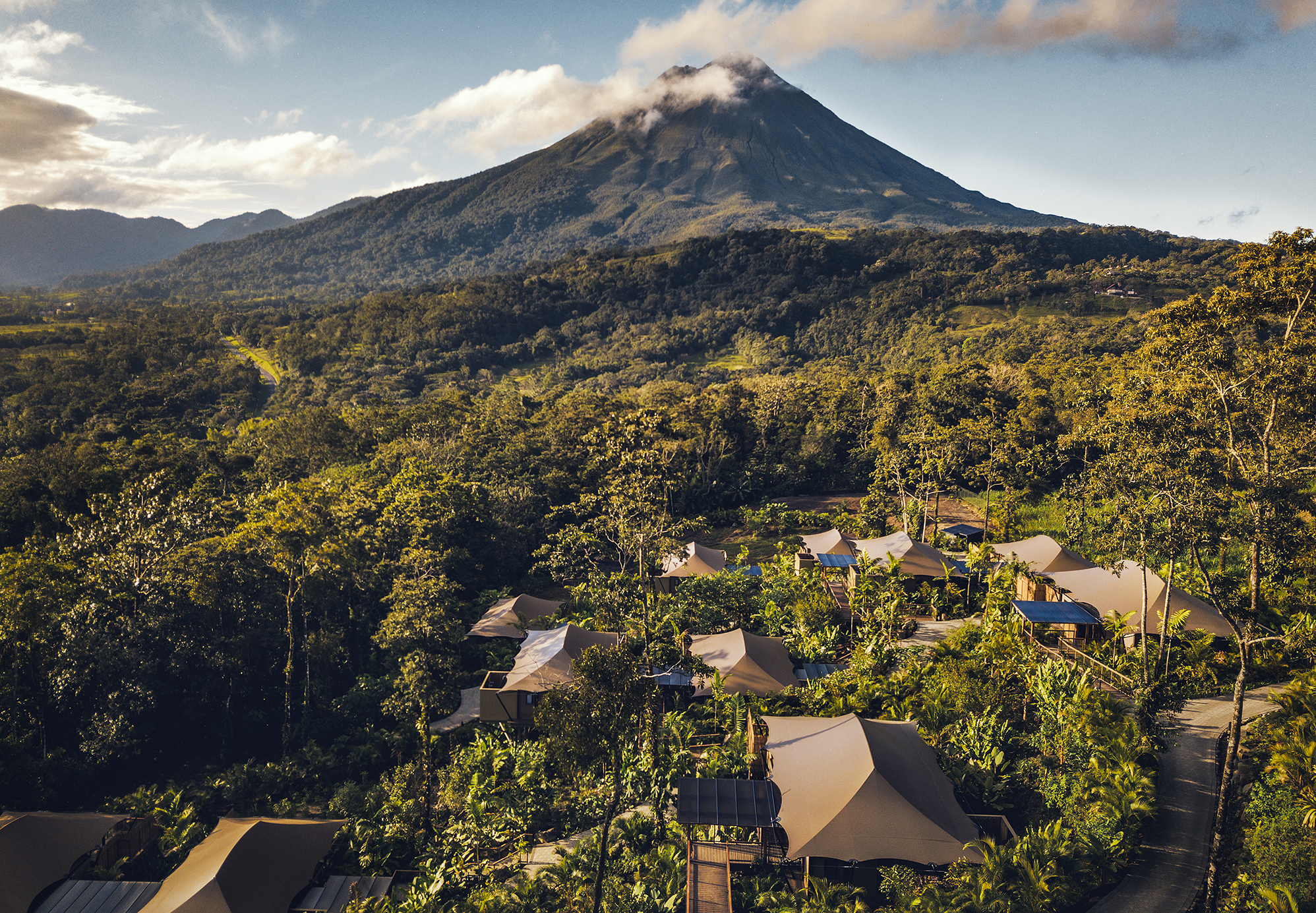Capella Ubud
A modern explorer's hidden paradise

About The Hotel
Capella's refined camp is more than a hotel. Constructed in between all of the trees and hidden from afar, it captures the imagination of those who aspire a truly unique experience that allows them to enjoy the essence of Bali’s untouched natural surroundings in personalize and stylish comfort. Capella Ubud, Bali offers twenty-two one-bedroom tents and one two-bedroom lodge; all with private pools.
Inspired by the spirit of discovery, Ubud restaurants add an unexpected twist to traditional flavours, influenced by the jungle setting and local heritage. Seasonal, sustainably-farmed ingredients are the priority at Mads Lange, while Api Jiwa cooks up intimate, authentic Asian barbecue food. Enjoy comforting camp snacks around Camp Fire, as you listen to live storytelling or a nostalgic film.
Spa experiences are drawn from Bali’s rich wellness tradition, with treatments using signature techniques and organic products exclusively blended for Capella Ubud, Bali.Cocooned in the rainforest at the heart of the camp, Auriga is an oasis for guests to indulge in bespoke treatments and rejuvenate among nature.
Inspired by the spirit of discovery, Ubud restaurants add an unexpected twist to traditional flavours, influenced by the jungle setting and local heritage. Seasonal, sustainably-farmed ingredients are the priority at Mads Lange, while Api Jiwa cooks up intimate, authentic Asian barbecue food. Enjoy comforting camp snacks around Camp Fire, as you listen to live storytelling or a nostalgic film.
Spa experiences are drawn from Bali’s rich wellness tradition, with treatments using signature techniques and organic products exclusively blended for Capella Ubud, Bali.Cocooned in the rainforest at the heart of the camp, Auriga is an oasis for guests to indulge in bespoke treatments and rejuvenate among nature.
INTERNET
- Public areas: free
In room: free
CHILDREN POLICY
- Children are welcome
CHECK-IN / CHECK-OUT
- Check-in: 3 pm
Check-out: noon
TRANSPORTATION AND TRANSFERS
- Subject to supplement
ROOMS
- 23 tents
PARKING
- Complimentary private parking is available on site
PETS
- Pets are not allowed.
SPA AND LEISURE
- outdoor pool
- fitness center
- spa
- diving
- snorkeling
ENTERTAINMENT&FAMILY SERVICES
- family rooms
FOOD&DRINK
- restaurant
- bar
GENERAL
- room service
- free wifi
- non-smoking rooms
- air conditioning
Sustainable Initiatives
Sustainable Initiatives

Travel Sustainable Measures
- Water-efficient toilets
- Water-efficient showers
- Option to opt out of daily room cleaning
- Option to reuse towels
- Recycling bins available to guests and waste is recycled
- The property makes efforts to reduce food waste
- Single-use shampoo, conditioner, and body wash bottles not used
- Single-use plastic stirrers not used
- Single-use plastic straws not used
- Single-use plastic bottles not used
- Single-use plastic cups not used
- Single-use plastic cutlery/plates not used
- Wild (non-domesticated) animals are not displayed or interacted with while kept at the property, nor are they harvested, consumed, or sold.
- Green spaces like (rooftop) gardens at the property
- Most food provided is organic
- Bicycle rental
- Bicycle parking
- Most food provided at the property is locally sourced
- Most lighting throughout property uses energy-efficient LED bulbs
- All windows are double-glazed
- Offsets a portion of their carbon footprint
- 100% renewable electricity used throughout
- Key card or motion-controlled electricity
- Invests a percentage of revenue back into community projects or sustainability projects
- Tours and activities organized by local guides and businesses
- Local artists are offered a platform to display their talents
- Provide guests with info about local ecosystems, history, culture, and visitor etiquette
JUNGLE AND RAINFOREST
Tented Camps For Glamping Lovers | Kore
Eco-Friendly Tented Camps With Unique Features for Glamping Lovers Nowadays, Tented Camps have developed into the latest travel trend, but this kind of travel lifestyle has been around for a long time. When was glamping invented? Its origin dates back to the 16th century when the Scottish Earl of Atholl prepared a glamping experience for his…
Read more































